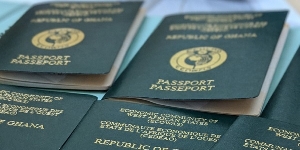It is established that there is a telecom domestic calls price war in Ghana. But the war extends to data services as well, which is where the industry is moving to now.
There is no doubt that Mobile Number Portability (MNP) has a lot to do with the current price war. It has become like a catwalk; every operator is trying to look good on the runway; and they are using fair and foul means to do so. Speaking of MNP, it is important to point out quickly that porting a data card from one network to the other means the customer must buy a modem from the new network because, the ported data card would not work in the modem of the previous network, even though the number is the same.
Each of the telecom operators have been bragging about having the highest internet speed at the lowest price. And they each do so passionately, as if they have all the details about what competition is offering. For instance, the Consumer Manager at Tigo, Rosy Fynn told this writer “we may not have the best price for pay-as-you-go, but we have the most affordable offers on bundles.” The Innovation Manager, Marketing at MTN Ghana, Nana Osei Afrifa also claimed “MTN has the lowest data bundle rate of 0.8 Ghana pesewas per megabyte at a speed of 7.2megabits per second, which is the fastest on the market – seven thousand times faster than any other network is offering. Even our pay-as-as-go rate is 6Ghana pesewas per megabyte which is three times lower than the 20Gp offered by our closest competitor.”
Vodafone Ghana claims their internet cafes have the fastest internet broadband speed in Africa (40megabits/second) and the best network quality, which gives value for every pesewa paid for Vodafone data and voice services.
Airtel also claims to have a bundle that offers 1.2Gp per megabyte of data download and a speed of up to 7.2megabits per second.
Expresso is the only telco that does not exercise its bragging right on internet speed and prices. It is not surprising because Expresso does not brag about anything at all.
But those were just the claims; the telcos are entitled to their claims, but no one telco is entitled to its own facts. This article would state the bare facts for the public to measure the claims against the facts.
First of all, it is important to point out that Expresso offers the lowest prices of 5Gp per megabyte on pay-as-you-go, which is marginally lower than MTN’s 6Gp. Vodafone and Airtel do 20Gp per megabyte on pay-as-you-go. Tigo’s pay-as-you-go offer is the most expensive on the market, and has no relevance in this day and age. The credit starts running out once the modem gets connected and is not even browsing the internet. How irrelevant it that? But the magnifying glass is on the bundles on the various networks, because that is what they all brag about.
MTN
The market leader, MTN has seven mobile broadband prepaid bundles and three extra for postpaid. The bundles have no brand names. The prices range between 0.8Ghana pesewas and 3.3Ghana pesewas. The lowest price on MTN, which is the 0.8Gp, is on only one unadvertised postpaid plan (GHC800 for 100GB), but the lowest price on a advertised prepaid bundle is 1.5Gp per megabyte, and that is on the 200MB for GHC3 bundle; and it is for only 24 hours, meaning after 24 hours one loses every unused credit on that bundle. Besides, on MTN’s postpaid bundles, if one outruns the credit in the bundle, every additional credit consumed costs 3Gp per megabyte and not 0.8Gp. MTN would never tell the consumer its lowest rate is on only one postpaid plan, and that, prepaid customers can only get as low as 1.5Gp per megabyte. They usually quote the lowest, as if that rate applies to all their bundles. They never talk about the other bundles that cost between 3.3Gp and 1.5Gp per megabyte. Customers only need to dial *138# and the bundles speak for themselves. In fact the bundles with the so-called lowest rates are not even advertised on the list accessible at *138#. Why?
It is worth noting that MTN’s 0.8Gp/megabyte bundle is worth GHC800. They even reduce the price by 50% at night. But it would be interesting to find out how many MTN customers actually patronize a bundle worth GHC800. It could as well be that the bundle exists only in name because it is convenient for MTN to cite it as the lowest on the market, but it may be of no relevance to customers. Again, MTN claims the 7.2megabits/second maximum speed on its 3.5G network is the highest default speed on the market, but the magnifying glass would show that is just the theory and nothing close to the reality. Again, is it the speed one person gets at a time or it is shared speed? MTN would never make that clear. Besides, Vodafone also claims to have modems with speeds up to 28.8megabits/second.
EXPRESSO
Expresso has five mobile broadband bundles on its EVDO network – Cliq, Cliq a Day, Cliq Regular, Cliq Premium and Cliq Gold. The prices per megabyte range between 2Gp and 0.92Gp. Expresso has a bundle that offers 1Gp per megabyte and another that offers 1.2Gp per megabyte. All those are much lower than the lowest price on MTN’s prepaid bundle.
Expresso claims to have internet speeds of between one and 3.1megabits per second on its EVDO bundles. Expresso is a CDMA network and operates at a frequency of 800Megahertz, which, according to experts, could give customers better real speed than on the GSM networks in Ghana, which operate on a frequency of 2.1gegahertz. But Expresso would need enough cell sites to do that. TIGO Tigo has four bundles; Lite Browser, Super Browser, Mega Browser and Ultra Browser.
The highest price per megabyte on Tigo is 1.3Gp and the lowest is 1.15Gp, which is also lower than MTN’s lowest for prepaid but higher than Expresso’s. But Tigo claims a lesser maximum speed of 3.6megabits/second on its 3.5G. But again, that may not be relevant as the evidence would show in this article that speed is affected by several factors outside the control of service providers.
AIRTEL
Airtel also has four bundles; Airtel Lite, Airtel Extra, Airtel Daily @ Phone and Airtel Daily @ PC.
The highest price on Airtel is the Airtel Daily @ PC, which is 10Gp per megabyte, and it is also the highest on the market. But it said price and others are under review. The lowest advertised price on Airtel is 1.5Gp per megabyte. Airtel claims to have a bundle called Rebate Extra that offers 1.2Gp per megabyte (12GB for GHC150), but that is not included in bundles displayed on its website; and the magnify lens shows the price is not 1.2Gp/megabyte; it is 1.25Gp/megabyte. Simple mathematics, so why would Airtel quote 1.2? Airtel also claims to offer 3.5G speeds of up to 7.2megabits per second, just like MTN, but Airtel does not claim it is the fastest, because it is not. At least Airtel admits it is shared speed and not necessarily speed for each customer.
VODAFONE
Vodafone has a total of seven prepaid and postpaid bundles; One Day, One Week, Browser, Streamer and Downloader for prepaid; and Bundle XL and Bundle XXL under postpaid. The highest price per megabyte on Vodafone is 3.3Gp just like it is on MTN, and the lowest price is 1.6Gp, which marginally higher than MTN’s 1.5Gp for prepaid. Vodafone claimed to have a bundle that offers 1.24Gp/megabyte, but there is no evidence to support that. Even if it is so, that rate is still higher than MTN’s 0.8Gp on postpaid, Tigo’s 1.15Gp on prepaid, and Expresso’s 0.92Gp. But on paper, Vodafone claims to have speeds of up to 28.8megabits/second on a 3.5G, which is four times MTN’s 7.2megabits/second, and yet MTN claims its 7.2megabits per second is “seven thousand times faster than what competition is offering”.
So why would MTN claim that it’s 7.2megabits per second is the fastest on the market? Vodafone give from one megabit/second upwards on fixed broadband; and that is what MTN compares its modem speed to, and not to Vodafone’s highest modem speed of 28.8megabits/second. MTN conveniently compares apples with oranges; besides, 7.2 is not “seven thousand times” higher than 1; simple mathematics. Obviously MTN postpaid 0.8Gp/megabyte is the lowest on the market (on paper), but its 7.2megabits/second is not the fastest advertised default modem speed on the market; Vodafone advertises the fastest of 28.8megabits per second. But the lowest prepaid rate on the market is Expresso’s 0.92Gp on Expresso Cliq Gold. The highest bundle rate for prepaid and postpaid, is Airtel’s Daily@PC, which is 10Gp per megabyte.
The worst pay-as-you-go offer is Tigo’s and the most affordable pay-as-you-go is on Expresso, 5Gp/megabyte. But Tigo’s highest prepaid bundle rate of 1.3Gp/megabyte is the lowest upper limit compared with MTN, and Vodafone’s 3.3Gp, Expresso’s 2Gp and Airtel’s 10Gp.
It is critical to note that most of the bundles of time limits of between 24 hours, one week, 15 days and one month, whiles a few, usually the ones that have high upfront payments, have unlimited usage time. But unlimited usage time does not mean the credit is infinite.
It is also important to note that the amount of credit one buys has nothing to do with how long one could spend on the internet because whiles on the internet, some software programmes and websites update automatically and that eats into the credit and cuts down on how long one could use that credit for.
GLO Glo has not started yet, but they have already started boasting of speed like never before, this like never before, and that like never before. What at all can any service provider do that has never been done before, or is not already being done? We live to see. SPEEDS For those networks which claim a data speed offered to their customers (and not all networks do so), they are citing the theoretical maximum speed, which can only be achieved under perfect or laboratory conditions, and it refers only to the speed between the cell site and the customer. It is virtually unheard of for a customer to achieve this speed in real-world situations. But they throw those figures out there for two reasons; to brag and secondly because those are the only figures they can throw out there. The reality is totally different. But some admit in private that speeds are affect by numerous factors beyond them. The first limiting factor is the signal strength the customer is getting from the cell site, which can depend on distance, frequency used by the network, and obstructions such as walls or other buildings – most people use internet indoors. A network having a cell site closer to you, or using a lower transmitting frequency, will produce better results, but not always predictably. Also, if you are moving while using the internet, the data will likely slow down.
Again, a cell site is usually being used by other customers near you – so its maximum speed is shared by all the customers in that neighborhood at that time, and the speed you experience will depend on how many others there are and what they are doing on the internet. If they (or you) are just reading web pages, it is not using too much data. But if anyone is watching or downloading video or audio, it is a bigger burden on the network and things will slow down. Inside a network, the facilities that bring the signal from the cell site to the central equipment is also shared among many users, and can slow down performance. Furthermore, the central equipment can become congested, and the network’s connection to the international internet as well as local internet can be overburdened and slow things down. A customer’s perception of performance can also be affected negatively if he is trying to access a web site that is also overloaded, as popular web sites can become from time to time. Also, a customer’s operating system such as Windows, his anti-virus protection, and other software can be downloading software updates which are important to keep the computer running smoothly and safely, but this also can make the internet connection seem slow if you are using it at the same time.
So speed on the internet depends on several factors that the telecom operators have no control over, and yet they promise heaven as if they control everything and can prove that the customer is actually experiencing that speed. And while a customer could look at his modem software to see how the data is flowing at any given moment, there is no simple way for the customer to determine his average speed.
Similarly, although NCA can measure data speed, this may not produce a number that is useful to consumers, as the individual experience depends on so many different factors. In my personal experience as a consumer I have found, not based on scientific research though, that speeds on MTN, Expresso’s Cliq, and Tigo’s 3.5G modems are just about okay. You cannot really place one ahead of the other, because there is no obvious difference. Vodafone modems have not proven to be fast enough in my experience, but their internet café has also shown to be just about okay. I do not know about the 40 megabits/second speed they claim to have, and it is not clear if that 40 megabits applies to each user, or is shared among all users present in the café at a given time.
By the way, how sustainable are these offers being put forward by the telecom operators? That is for another day.
But it is about time the regulator, National Communications Authority (NCA) woke up and sat up to ensure some sanity in the claims and counter claims to supersonic speeds and low prices, which do not march the evidence, as shown by the magnifying glass; otherwise, one day a telecom operator will just make a claim “customers can now speak to God on our network” and they will get away with it.
Feature by: Samuel Nii Narku Dowuona
Opinions of Saturday, 10 September 2011
Columnist: Dowuona, Samuel Nii Narku














